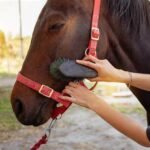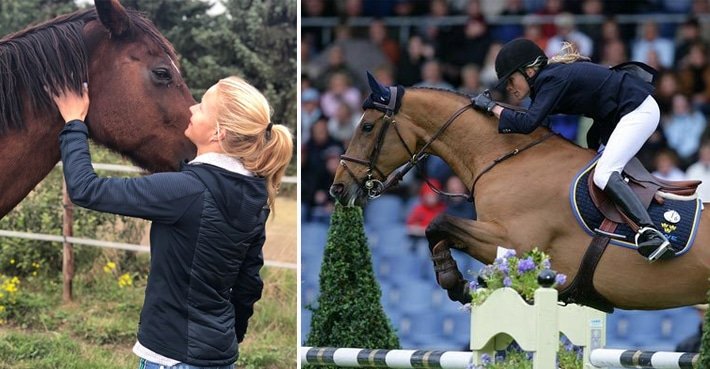Warmblood horses are known for their versatility, athleticism, and strong work ethic, making them ideal candidates for various equestrian disciplines such as dressage, show jumping, and eventing. Understanding their temperament is crucial for developing a strong bond and effectively training them. Here’s an overview of the key temperament traits of warmblood horses and how they affect their handling and training.
1. Intelligent and Trainable
Warmbloods are often regarded as highly intelligent and eager to learn. Their ability to pick up on cues and perform tasks quickly makes them well-suited for complex disciplines. They respond well to structured training sessions and benefit from clear, consistent communication.
Tips for Success:
- Use positive reinforcement methods, such as praise and treats, to encourage learning.
- Maintain a calm and patient demeanor during training to avoid overwhelming the horse.
- Gradually introduce new tasks to keep them mentally engaged and prevent boredom.
2. Calm but Sensitive
Although warmbloods are generally calm and composed, they tend to be sensitive to their environment and the emotions of their rider. They can pick up on subtle cues, and if a rider is tense or nervous, the horse may mirror these feelings, leading to anxious behavior or reluctance to perform.
Tips for Success:
- Be aware of your own body language and emotions during training and competition.
- Create a calm and supportive environment to help the horse stay relaxed.
- Take time to build trust with your warmblood to foster a deeper connection.
3. Strong Work Ethic
Warmbloods are known for their strong work ethic and are often described as “willing workers.” They enjoy having a job to do and thrive when given clear goals and consistent routines. However, this strong drive can sometimes lead to overexertion if not managed properly.
Tips for Success:
- Ensure that your training sessions are well-balanced with rest periods to avoid fatigue.
- Set realistic goals and gradually increase the intensity of the work to match the horse’s progress.
- Incorporate variety into training to keep the horse engaged and motivated.
4. Courageous but Cautious
Warmbloods tend to be bold and courageous, especially in competitive settings like show jumping or eventing. However, they can also be cautious, particularly when faced with unfamiliar or intimidating obstacles. This combination of bravery and caution can sometimes result in hesitation.
Tips for Success:
- Introduce new challenges gradually to build the horse’s confidence.
- Allow the warmblood to approach new experiences at their own pace, rewarding small steps of progress.
- Avoid pushing them too quickly, as this can lead to anxiety or refusal.

5. Affectionate and Social
While warmbloods are known for their work ethic and focus, they are also social animals that form strong bonds with their handlers. They are affectionate and enjoy being around people, often seeking attention and interaction. This affectionate nature makes them excellent companions, both in the barn and during training sessions.
Tips for Success:
- Spend quality time grooming and bonding with your warmblood outside of training.
- Provide opportunities for socialization with other horses to prevent loneliness.
- Use gentle, positive handling techniques to strengthen the bond between you and your horse.
6. Need for Consistent Leadership
Warmbloods respond best to clear and consistent leadership. While they are generally willing and obedient, they may become confused or anxious if their rider is inconsistent or unclear in their commands. Establishing yourself as a confident and reliable leader is key to getting the best performance from a warmblood.
Tips for Success:
- Be clear and consistent with your cues and commands.
- Avoid using forceful or negative techniques, as these can damage the horse’s trust.
- Maintain a calm and composed demeanor, especially in stressful situations, to set a positive example for your horse.
Conclusion
The temperament of warmblood horses is a blend of intelligence, sensitivity, and a strong work ethic. Understanding these traits allows owners and riders to create an effective training approach, foster a positive relationship, and achieve success in equestrian pursuits. By providing structure, patience, and positive reinforcement, you can develop a well-rounded and confident warmblood ready to excel in any discipline.











